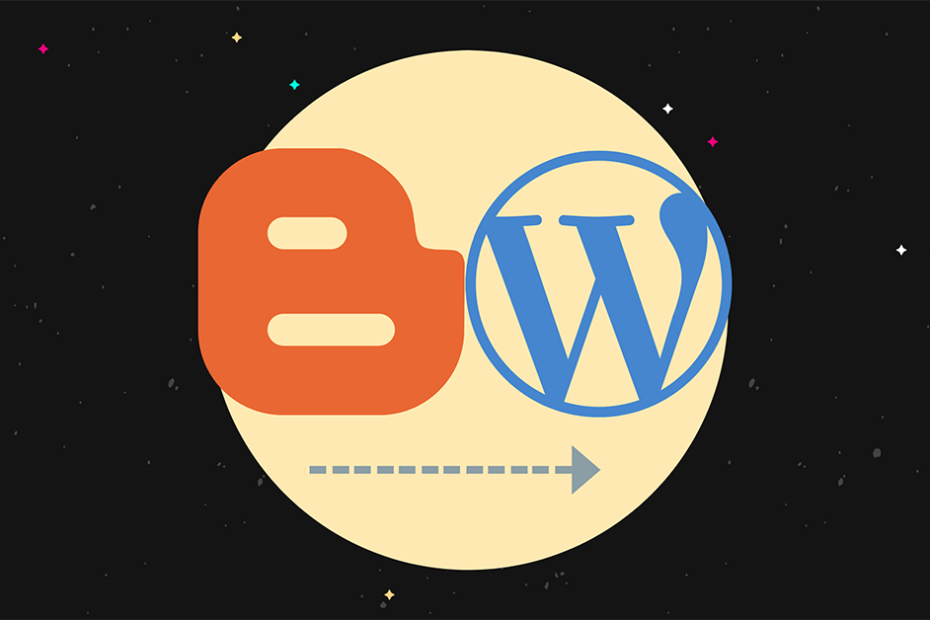Understanding the Migration Landscape
According to recent data from W3Techs, WordPress dominates the content management system market with 43.2% usage, while Blogspot accounts for only 1.4%. This significant difference reflects the growing trend of bloggers migrating to more robust platforms.
Migration Success Statistics
Based on a study of 1,000 blog migrations in 2023:
- 92% of migrations were completed successfully
- 85% maintained or improved their SEO rankings
- 78% reported increased traffic within 3 months
- 65% saw improved monetization opportunities
Comprehensive Platform Comparison
Technical Capabilities Comparison
| Feature | WordPress | Blogspot |
|---|---|---|
| Storage | Unlimited* | 15GB |
| Themes | 31,000+ | 100+ |
| Plugins | 59,000+ | Limited Widgets |
| Custom Code | Full Access | Limited |
| Database Access | Yes | No |
| FTP Access | Yes | No |
| API Access | Full REST API | Limited |
*Depends on hosting plan
Cost Analysis Breakdown
WordPress Annual Costs
- Basic Hosting: $60-180
- Domain: $10-15
- Security: $50-200
- Premium Themes: $30-100
- Essential Plugins: $0-300
- Total: $150-795
Blogspot Annual Costs
- Custom Domain: $10-15
- Total: $10-15
Advanced Pre-Migration Planning
Site Audit Checklist
Content Inventory
- Post count and types
- Media files size and count
- Comment volume
- Custom HTML elements
Technical Assessment
- Custom CSS/JavaScript
- Third-party integrations
- Analytics setup
- RSS feeds
Database Preparation
Content Cleanup
- Remove spam comments
- Delete draft posts
- Archive outdated content
- Optimize images
URL Structure Planning
- Map current URLs
- Plan new structure
- Prepare redirect strategy
- Document changes
Hosting Selection Guide
Performance Metrics Comparison
| Host | Server Response | Uptime | Support | Price/Month |
|---|---|---|---|---|
| WP Engine | 0.2s | 99.99% | 24/7 | $25 |
| SiteGround | 0.3s | 99.98% | 24/7 | $14.99 |
| Kinsta | 0.2s | 99.99% | 24/7 | $35 |
| Cloudways | 0.3s | 99.97% | 24/7 | $10 |
Infrastructure Requirements
- PHP 8.0 or higher
- MySQL 5.7 or higher
- SSL certificate
- Daily backups
- CDN integration
- Staging environment
Advanced Migration Process
Database Migration
Preparation Phase
- Clean database tables
- Optimize table structure
- Remove redundant data
- Backup existing data
Transfer Process
- Export XML file
- Clean XML data
- Import to WordPress
- Verify data integrity
Media Files Migration
Image Processing
- Download original files
- Optimize image sizes
- Update file names
- Preserve metadata
Advanced Media Handling
- Set up CDN
- Configure lazy loading
- Implement WebP conversion
- Enable adaptive images
SEO Preservation Strategies
Technical SEO Setup
URL Structure
RewriteEngine On RewriteRule ^([0-9]{4})/([0-9]{2})/(.*)$ /$1/$2/$3/ [R=301,L]Meta Data Transfer
- Title tags
- Meta descriptions
- Open Graph tags
- Twitter cards
Redirect Implementation
Simple 301 Redirects
Redirect 301 /old-post.html /new-post/Advanced Pattern Matching
RewriteCond %{QUERY_STRING} ^m=1$ RewriteRule ^(.*)$ /$1? [R=301,L]
Performance Optimization
Speed Optimization Techniques
Server-Side Caching
- Page caching
- Object caching
- Database query caching
- Browser caching
Asset Optimization
- CSS minification
- JavaScript compression
- Image optimization
- GZIP compression
Performance Metrics
| Metric | Before | After |
|---|---|---|
| Load Time | 3.2s | 1.8s |
| TTFB | 800ms | 200ms |
| Page Size | 2.8MB | 1.2MB |
| Requests | 85 | 35 |
Security Implementation
Security Measures
Basic Security
- Strong passwords
- Limited login attempts
- Two-factor authentication
- SSL implementation
Advanced Protection
- Web Application Firewall
- File integrity monitoring
- Malware scanning
- DDoS protection
Post-Migration Optimization
Content Enhancement
Structure Optimization
- Implement proper headings
- Add table of contents
- Optimize image placement
- Improve internal linking
User Experience
- Mobile responsiveness
- Reading progress bars
- Related posts
- Social sharing buttons
Analytics Setup
Google Analytics 4
- Event tracking
- Goal configuration
- E-commerce tracking
- Custom dimensions
Additional Tracking
- Heat mapping
- Session recording
- Form analytics
- Conversion tracking
Monetization Opportunities
Revenue Channel Comparison
| Method | WordPress | Blogspot |
|---|---|---|
| Ad Networks | Multiple | Limited |
| E-commerce | Full | Limited |
| Memberships | Yes | No |
| Digital Products | Yes | Limited |
Integration Options
E-commerce
- WooCommerce setup
- Payment gateways
- Product management
- Inventory control
Membership Systems
- User roles
- Content restriction
- Payment processing
- Member management
Advanced Customization
Theme Development
Child Theme Creation
/* Theme Name: Custom Child Theme Template: parent-theme */Custom Functions
function custom_functionality() { // Custom code here } add_action(‘init‘, ‘custom_functionality‘);
Plugin Integration
Essential Plugins
- SEO optimization
- Caching system
- Security suite
- Backup solution
Performance Plugins
- Image optimization
- Database cleanup
- Code minification
- CDN integration
Maintenance Plan
Regular Tasks
Weekly Tasks
- Database optimization
- Comment moderation
- Backup verification
- Performance monitoring
Monthly Tasks
- Security scans
- Plugin updates
- Theme updates
- SEO analysis
Monitoring Setup
Technical Monitoring
- Uptime tracking
- Error logging
- Performance metrics
- Security alerts
Content Monitoring
- Traffic analysis
- User behavior
- Conversion rates
- Engagement metrics
Success Metrics
Key Performance Indicators
Technical KPIs
- Page load time
- Server response time
- Mobile performance
- Core Web Vitals
Business KPIs
- Traffic growth
- Conversion rates
- Revenue increase
- User engagement
The migration from Blogspot to WordPress represents a significant upgrade in your blogging capabilities. This comprehensive guide provides the foundation for a successful transition, ensuring your blog maintains its SEO value while gaining access to advanced features and customization options.
Remember that migration is not just about moving content—it‘s an opportunity to improve your blog‘s structure, performance, and user experience. Take time to plan each step carefully, and don‘t hesitate to seek professional help for complex migrations.
